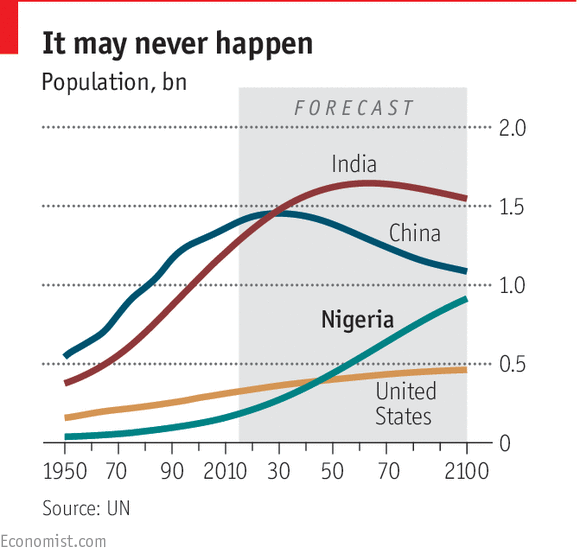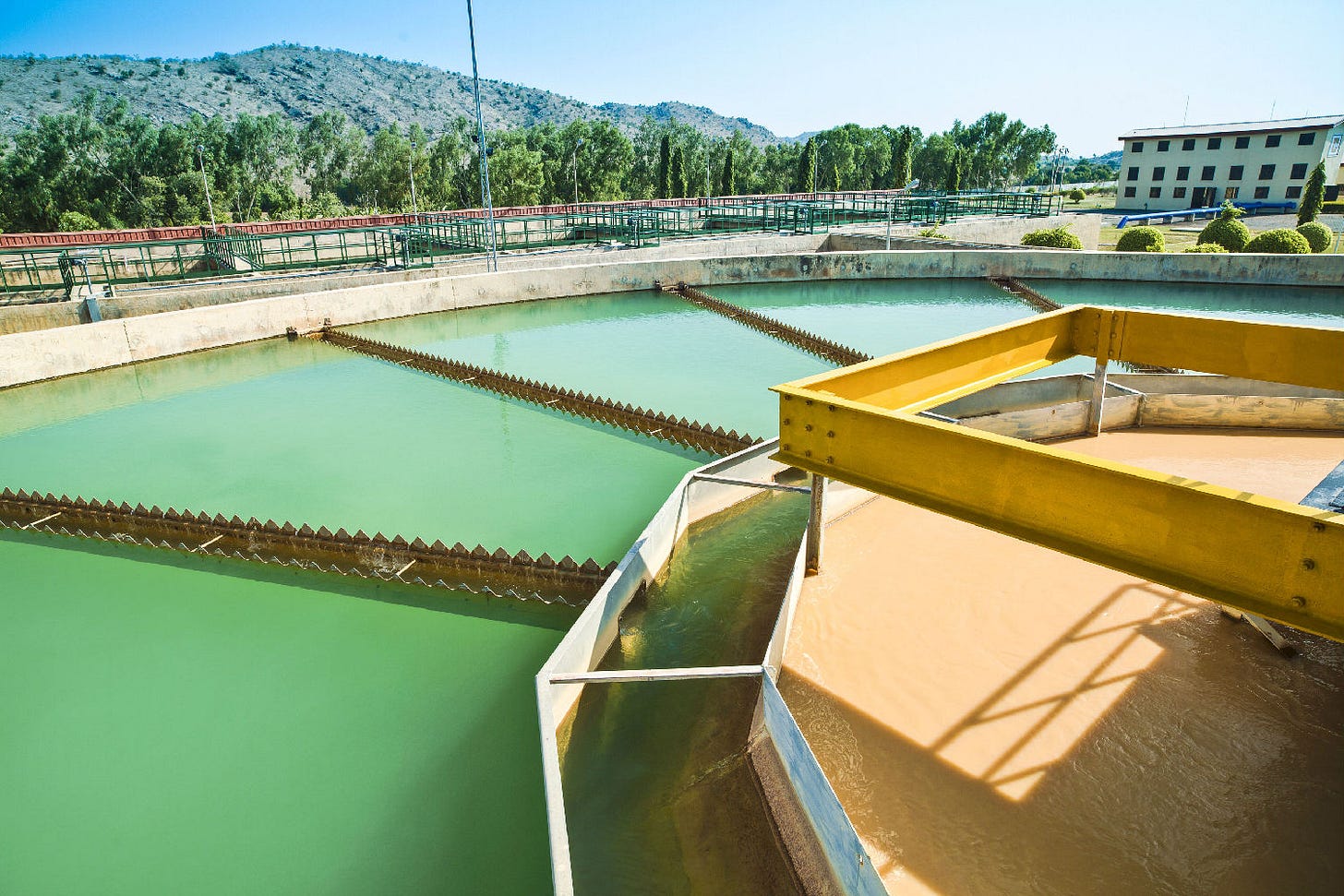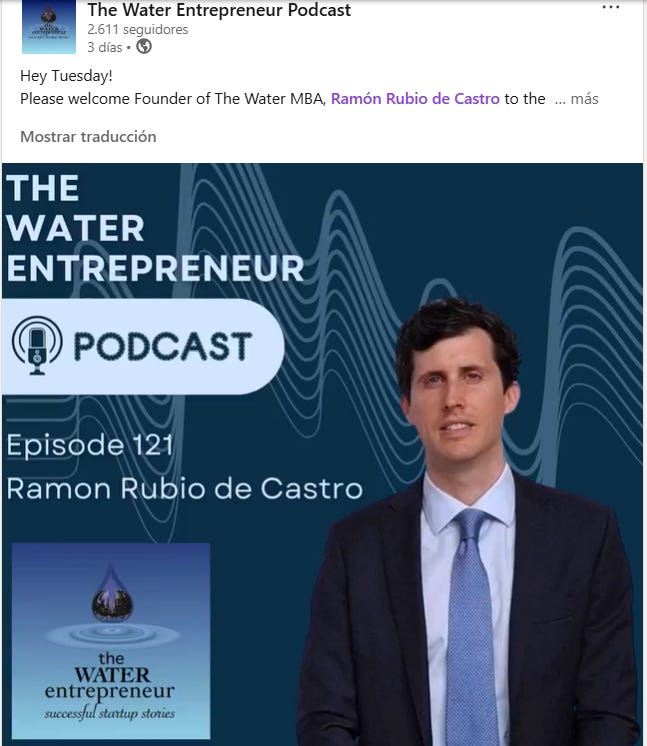Nigeria's critical water challenges
From geometric population growth and aging, underperforming infrastructure to widespread pollution and significant investment gaps, and the visionary strategies.
If we talk about water, you understand that our business school is not going to leave Africa behind, despite the gap that I feel is still widening.
Africa will have its own voice and its rightful place in our community.
It may take longer to fully involve them, but professionals there will need to access knowledge as easily as possible—here it’s basically just two clicks away—and at the lowest price barrier.
Why?
Because Africa doesn’t necessarily need to follow the same development path the rest of the world has taken.
They can leapfrog directly to the front line.
It already happened with phones: they skipped landlines and went straight to smartphones. In fact, Kenya was a global pioneer in mobile payments.
Within Africa, Nigeria stands out as a potential future powerhouse for many reasons.
That’s why I invited Bibilore Omotosho to share with us their current challenges. They are not easy to solve, but they are crucial to understand.
I am revisiting and repurposing top content from 2024, this time with context, commentary, and key takeaways.
Whether you’re catching up or rewatching, think of this as your curated highlight of the year that was.
Bibilore is a prominent figure in Nigeria's water sector, currently serving as the Governing Member Chair for the International Water Association (IWA) Nigeria.
She is also an environmental consultant.
Previously, she held the position of steering chair for the young water professionals, during which she organized national competitions for the Stockholm Junior Water Prize.
In her current role, she maintains strong relationships with the Minister of Water Resources and state governors or commissioners, enabling IWA to engage at a decision-making level.
She emphasizes IWA's commitment to facilitating knowledge exchange, capacity building, technical assistance, policy and advocacy, research and innovation, and attracting foreign direct investment for Nigeria's water projects.
Ms. Bibilore highlighted several main challenges facing Nigeria's water sector:
• Geometric population growth: The population is expanding rapidly, making existing infrastructure, often built decades ago for much smaller populations, inadequate to serve over 200 million people today.
Do you think it is easy? Put yourself in their shoes.
Which design is used for the water treatment plant? What is the diameter of the pipe networks for distribution? How do you design and implement it? Who pays for it, and how?
• Maintenance and public perception of water as free. (this sounds familiar….). There's a widespread belief that water should be free.
However, she noted a positive trend in some communities, like estates in Lagos State, where decentralized water systems are metered and users pay for services, indicating a growing understanding of water's value.
• Poor sanitation and uneven water access. Nigeria struggles with high rates of open defecation, despite initiatives like the "Clean Nigeria Campaign." Access to clean water is uneven, forcing those who cannot afford boreholes to travel long distances or purchase water from vendors.
• Climate impacts. Extreme weather events like droughts and floods significantly affect water quality and supply, with devastating consequences for agriculture, food, and livelihoods, often leading to widespread destruction of property and businesses.
• Water pollution. Untreated industrial, agricultural, and fecal waste are discharged into water sources, leading to contamination and public health issues.
• Lack of funding and political will. Government investment in water infrastructure is often hampered by a focus on immediate return on investment (ROI).
Ms. Bibilore suggests showcasing successful revenue-generating models from other countries to incentivize investment in the water sector's "gold mines".
As our friend Walid Khoury mentioned in his episode, we may face water abundance if the political will exists.
• Water governance and institutional challenges. She pointed out issues such as "structural corruption" and "institutional fragmentation" within the water sector.
But Nigeria has plenty of rivers
Nigeria has major infrastructure projects like dams and reservoirs intended for water management, flood control, and irrigation.
However, many of these facilities are ageing, neglected, and struggling to do their job effectively. How important is the O&M aspect of our facilities…
They are often in rough shape, silted up**, leaking, and some have"even collapsed, causing massive damage.
**Not many people know that reservoirs tend to lose net water storage capacity due to sedimentation, globally, around 1% annually. Without maintenance or proper design, this could, in the worst case, render the reservoir unusable.
Beyond physical condition, challenges exist in managing and distributing water from these dams, leading to water going to wrong places or getting wasted due to poor planning and coordination.
For example, in Enugu state, three functional water production facilities operate at only 15% of their installed capacity.
So is it a matter of money?
There is a significant financial shortfall in Nigeria's water sector.
Despite ₦1.6 trillion for the WASH sector over five years, the financial commitment to the water sector is insufficient.
Nigeria needs to triple its annual water budget or increase spending to 1.7% of GDP to rehabilitate and expand water treatment plants, distribution networks, and storage facilities.
Improving water systems is extremely costly, requiring billions of dollars for new infrastructure, and the government's budget is stretched thin.
International aid helps, but it is insufficient to solve the problem.
Financial factors contributing to infrastructure failure include the high cost of infrastructure and maintenance, insufficient budget allocation, issues with user fee collection and willingness to pay, and unsustainable public sector spending.
Public-Private Partnerships (PPP) could be a solution?
Well they are suggested as a solution to bring in more money and expertise, but they require careful structuring to ensure water remains affordable for the poor.
Without increased investment, Nigeria's water problems are expected to "only get worse as the population grows".
But apart from the typical headlines we see everywhere, such as the usual “we need more investment, and it must be faster and smarter”, how can we actually figure out how to unlock this in reality? Where are the bottlenecks? We need to identify them and have a real discussion about it.
Ticking health scare
In urban areas, where public water systems are often dysfunctional, many Nigerians rely on private boreholes, with an estimated 200,000 installed in Lagos alone by 2019.
However, this reliance comes with a grave hidden danger: research found that boreholes located near landfills or soakaway pits can contain heavy metals, carcinogenic substances, or allow fecal matter to seep into the water table, creating a "ticking health scare" for unsuspecting users.
This directly contributes to unsafe water being a leading risk factor for death, accounting for 7% of deaths in Nigeria.
The 60-Kilometer pipeline that doesn't deliver
In Gombe State, despite the government spending a substantial ₦150 million monthly on water treatment at the Dadinkowa Treatment Plant, residents still struggle to get water.
The plant itself is located 60 kilometers away from its reservoir and even further from the dam.
This vast distance in the main water line leads to rampant illegal connections, effectively preventing the treated water from reaching the communities it's meant to serve.
The "Water No Get Enemy" paradox
Nearly five decades ago, Nigeria's own Afrobeat legend, Fela Anikulapo Kuti, released his hit track "Water No Get Enemy," celebrating the life-saving benefits of water.
Yet, today, Nigeria faces a severe water crisis, with 179 million people lacking access to potable water, starkly contrasting the song's sentiment and highlighting a long-standing, unresolved challenge.
My personal experience
I’ve had the privilege of working in Ghana, Kenya, and Angola, visiting these countries, their communities, and utilities.
One thing is clear: this is not an easy region to work in.
Things do not operate the same way as in the rest of the world.
Delays are constant.
If you think you can sign and deliver a project on time, this is extremely unlikely.
One of the most complex challenges is logistics and ensuring the availability of supplies. When you are working on a construction site or operating a plant, you need consumables—chemicals, diesel, and other materials—which can be very difficult to secure.
Additionally, machinery breakdowns are common, repairs take time, replacements are hard to obtain, and maintaining a motivated, long-term workforce is equally challenging.
Purpose of this essay and episode
I believe that fostering open, human conversations, asking questions, thinking aloud, identifying real daily challenges, and sharing visions, is essential.
Complementing this with brief essays that address these topics from multiple perspectives, including key takeaways and real-world case studies, will further enrich the learning experience.
If we aim to grow with an “MBA” or entrepreneurial mindset within our community, we must go beyond technical issues and surface-level narratives.
We need to challenge our thinking, confront realities, and equip ourselves with the ability to think critically so that we are better prepared to make informed decisions.
The Water Entrepreneur Podcast
A few days ago, I had the pleasure of being hosted on my favorite water podcast.
Many of you may have already seen it on LinkedIn, but I’ll leave the link here in case you ever feel really, really bored and want to listen to Paul and me…
What I particularly enjoyed was that I chose not to have a list of questions in advance. It felt more like a private fireside chat, which I loved. I really value serendipity, it forces me to pay closer attention and keeps my brain sharp.
It’s the same reason why, when I attend events, I prefer not to stick to strict agendas, but instead to stumble into random conversations and unexpected questions to see what I can learn.




